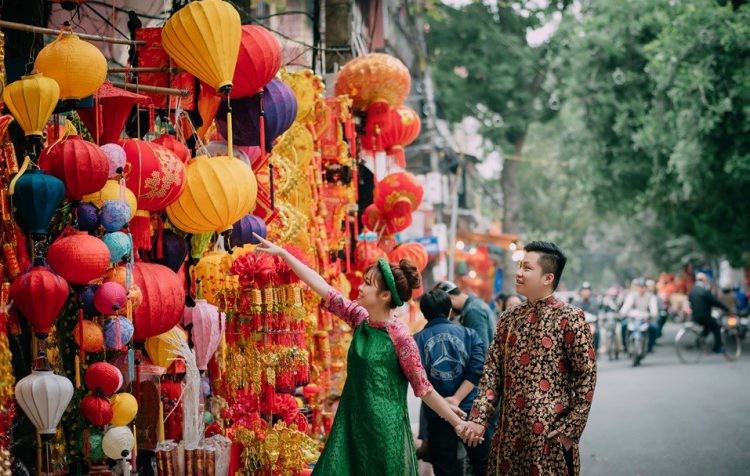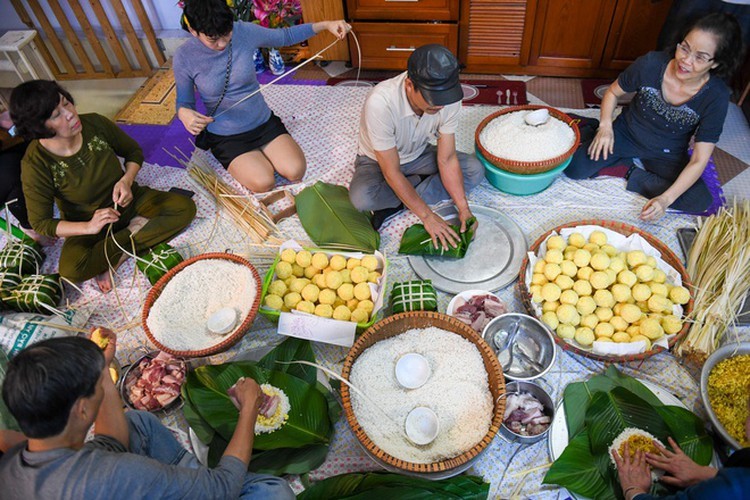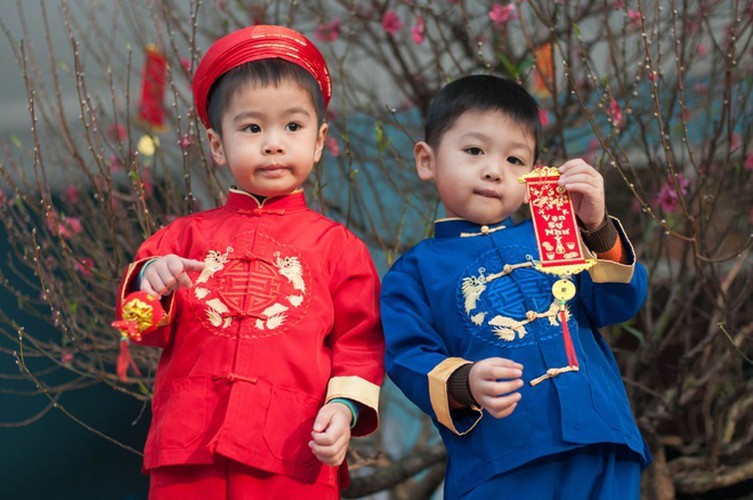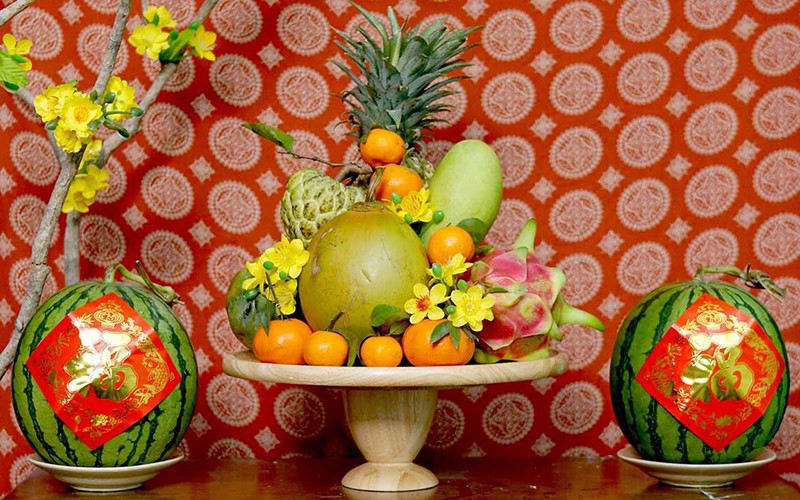Whether in ancient times or today, Tet still remains the most significant and traditional holiday in Vietnam. It is not only a sacred moment that marks the transition from the old year to the new year, but also reflects the Vietnamese people’s perspective on life as well as their deep-rooted and distinctive customs and beliefs that reflect the national culture.
Worshipping Kitchen Gods
On the 23rd day of the 12th lunar month, which falls on January 25 this year, the ritual of worshipping the Land Genie and Kitchen Gods is held. This is considered the beginning of the Lunar New Year (Tet) festival, which is the biggest and most important traditional holiday for the Vietnamese people.
 |
| Vietnamese people believe that the Land Genie and Kitchen Gods have a significant influence on their family’s good luck, blessings, and fortune. Photo: Vietnam Insider |
According to the legend, the “Ong Cong” (Land Genie) is responsible for the land, while the “Ong Tao” (Kitchen Gods), consisting of two male figures and one female figure, oversee the kitchen affairs of a family. They observe and note down the family’s events and activities throughout the year. On the 23rd day of the 12th lunar month, they ride on the back of Carps back to Heaven to report all the good and bad things that happened within the family to the God of Heaven.
The “Ong Tao” represents the prosperity and happiness of a family. Therefore, the Vietnamese people strongly believe that the Land Genie and Kitchen Gods play a crucial role in determining the family’s fortune, luck, and blessings.
Cleaning and decorating the house
In the days leading up to Tet, Vietnamese people often clean their houses, getting rid of old belongings that are no longer used and replacing them with new ones. This symbolizes their desire for a new year filled with prosperity and abundance.
 |
| People enjoying the Tet holiday. Photo: Vinwonders |
Tet holiday songs are played, and Vietnamese houses are adorned with various Tet holiday decorations, creating a warm and joyful atmosphere. Some of the typical Vietnamese New Year decorations include red couplets, “cay neu” (a bamboo pole with various decorations used to ward off evil spirits), and specific flowers associated with Tet, which create a festive ambiance.
Wrapping Chung Cake
One of the key Tet traditions for Vietnamese people is to wrap Banh Chung, a type of square glutinous rice cake, and Banh Tet, a round glutinous rice cake. These types of cakes are specially made to worship ancestors or to be given as special gifts to relatives and guests. As family members participate in making and consuming these delicacies, they spend time together reminiscing about the events and stories of the past year.
 |
| Both Banh Chung and Banh Tet are square and cylindrical sticky rice cakes that are essential for Tet celebrations. Photo: Vietnamnet |
Both Banh Chung and Banh Tet are square and cylindrical sticky rice cakes that are indispensable for Tet celebrations. The tradition of spending several hours cooking Tet cakes has been passed down through generations in Vietnamese families.
Giving children “Li Xi”
Giving children “Li Xi”, also known as lucky money, is one of the most anticipated Tet customs, especially for children. “Li Xi” refers to a small amount of money placed in a red envelope and given to children. It is believed that “Li Xi” brings good fortune and happiness, and it undeniably brings great joy to the recipients.
 |
| “Li Xi” refers to a small amount of money placed in a red envelope and given to children. Photo: Vietnamnet |
Traditionally, “Li Xi” is given during the first three days of Tet, which is from the 1st to the 3rd day of January on the Lunar calendar.
Arranging a five-fruit tray
Arranging a five-fruit tray is a long-standing tradition in Vietnam during the Lunar New Year celebration.
Among the numerous offerings required to decorate ancestral altars during the traditional New Year, a five-fruit tray is indispensable for Vietnamese families. It symbolizes the utmost sincerity of the current generation towards their ancestors.
 |
| Arranging a five-fruit tray is a long-standing tradition in Vietnam during the Lunar New Year celebration. Photo: tuoitre.vn |
A typical five-fruit tray consists of five different fruits, each symbolizing one of the five elements – Metal, Wood, Water, Fire, and Earth – which together represent happiness, wealth, long life, health, and peace, the five blessings people wish for in the new year.
So, whether in the past or present, Tet is undoubtedly the most significant traditional holiday in Vietnam. It reflects the Vietnamese people’s deep-rooted traditions, customs, and beliefs, which are shaped by their national culture and cherished by generations.
Exotic fruits much sought after for Tet holiday
With favourable natural conditions, the Mekong delta region is home to diverse fruit species. When Tet (Lunar New Year) comes, exotic fruits are offered for sales to serve people’s demand.








